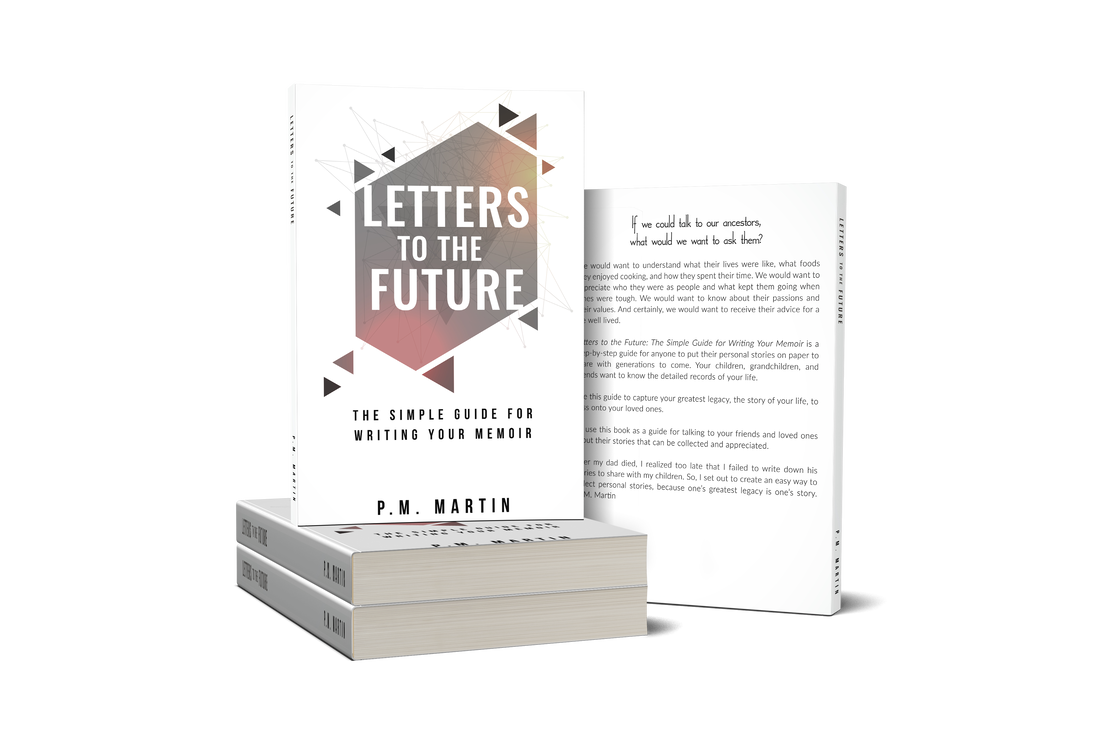 You've decided to write your memoir. You're ready to collect your personal stories with the hopes that they’ll become deeply-cherished family treasures to be passed down for generations. Or perhaps your memoir will reach outside of your family’s intimate circle and affect people around the world, as so many published memoirs do these days. But how does a writer start the process of collecting personal stories? Sometimes a story is working its way to the surface, insisting on being told. You wake up in the morning thinking about that one time when, and you fall asleep running through the details of the event. Every now and then, writers get lucky enough to have a story itching to be written, but much of the time, we need to pick at the surface until we unearth memories worth retelling. As with many activities, getting started can pose the greatest challenge. Many writers agree that the blank page is the most formidable enemy, but once you put a few words on the page, the rest of the story can fall into place. There are a couple different approaches that work well for beginning work on a memoir. One method is to brainstorm a list of 15-20 memories that are waiting to be told. This works well for writers who have stories immediately ready and are ready to set pen to paper without much preparation. However, many writers need more preparation. For these writers, writing prompts can be the more successful and efficient path for writing. The three writing prompts below are from the book Letters to the Future: The Simple Guide for Writing Your Memoir. These prompts intentionally include multiple questions so if the first one doesn’t jump out at you, the next one may. Some writers have multiple stories related to each prompt and can use a single prompt to write several pieces. Use these writing prompts to spark your memory—and then start writing your first few memoir stories. Memoir-Writing Prompt 1. What’s in a Name? What was your full name at birth and what is your name now? What does your name mean? Do you like it? Why did your parents name you that? What did people call you when you were a child? When you were a teenager? Did you ever have a nickname? What was it, and how did you get it? Many families follow naming traditions. The first son may be named after the grandfather and the first daughter after the grandmother. Perhaps children are named for ancestors from several generations ago. Or perhaps parents choose names of famous people, leaders, artists, or religious figures like patron saints. Then again, some families opt for the popular name at the time. In the early 20th century, the most popular boy’s name was John in both the United States and England, so if you have a grandfather or uncle named John, he may have been given the popular name of the time. If you grew up in the decade of Patricias, Heathers, Jennifers, or Madelines, then you know how loved popular names can be. Our names do more than give us a moniker, they define who we are, encapsulate our parent’s mindset, and present us to the world. In some senses, our given names define who we are, while the nicknames we choose for ourselves allow us to re-imagine our place in the world. Our nicknames allow us to rename ourselves and give our friends power over us. Some cultures, like the United States, prefer shortened names to formal ones. Not only is writing a story about your name an engaging addition to your memoir, but it’s a way to start conversation with family about their names. Do you know how your parents chose your name? Is there a story behind how you got your name? What about your last name? Is there a story behind your family name and its significance? The topic of naming can provide a foundation for a fascinating story. Memoir-Writing Prompt 2. Family and First Friends What are the names and birthdays of your parents? What are your favorite memories with your parents? What three words would you use to describe them and why? Did you look up to your parents when you were a kid? What did you admire about them? What did you dislike about them? Who are your siblings? What are they like? How did you get along as kids? Have you lost any siblings? What is your favorite memory with your siblings (or cousins or friends) when you were young? Which kid were you: the smart one, the attractive one, the athletic one, etc.? Why did you get that label? Are your family members your friends or are your friends your family? The people we surround ourselves with define us, guide us, and support us, and they oftentimes are a reflection of who we are. So much about who we are and what we do is connected to our friendships. How have friendships affected you? What stories can you capture connected to your friendships? Memoir-Writing Prompt 3. Who Were Your Ancestors? What are the names and birthdates of your grandparents? What are some interesting things you remember about them? What were their personalities, favorite activities, and memories you shared? How about your great-grandparents, aunts, uncles, cousins, or other relatives? Do you know their names and birthplaces? What were their occupations? Did you ever meet them? What did you hear about them from others? What about them did you like? What stories did they tell you about their past and where they came from? Do you know any ancestors’ names, birthdays, or places of birth prior to your great-grandparents? What countries and cultures did your ancestors come from? Is that important to you? If so, why? When writers compose the stories of their lives, those stories rarely stay put. They wander into family stories, stories with friends, and cultural events. Our stories overlap with those of our ancestors, our friends, and our colleagues. The confluence of stories allows us to connect our experiences to those around us and open up a path for integrating genealogical work within our memoirs. Sometimes, writers have only fragments of stories about their ancestors; integrating those within our own stories as flashbacks, asides, and anecdotes can allow us to tell both stories. In many ways, our ancestors’ stories are the foundation for our stories, because their experiences laid the groundwork for our narratives to take place. As with any type of writing, getting started is usually the hardest part of the process. Once you get the first lines down, then the rest of the story tends to flow more easily. The first draft is never the final draft, so getting the words on the page is the first step in a series to not just collect your stories but to compose your memoir. Buy a copy of Letters to the Future and write your memoir.Related Blog Posts
|
About the SiteWelcome, Writers! Archives
September 2023
|






 RSS Feed
RSS Feed